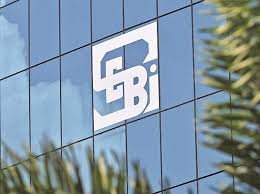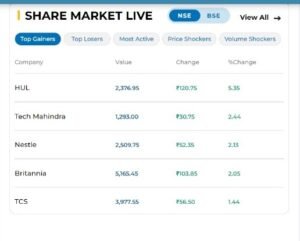On Tuesday, The Securities and Exchange Board of India (SEBI), rejected the proposal by NSE regarding the extended timings for derivatives market. The NSE CEO, Ashishkumar Chauhan stated, “Currently there is no plan to increase the timings (for trading) as SEBI has returned back the application which we had provided because the stock brokers seemed to have not given the feedback that SEBI wanted.”
NSE’s Proposal
The NSE had requested SEBI to extend trading hours in the derivatives market by three hours, from 6 pm to 9 pm, to enable market participants to monitor global activity.
The proposed extension would have initially applied to index F&O trading, with potential plans for further extension until 11:30 pm in subsequent phases, and a final phase involving extension of cash market hours until 5 pm.

This extension was seen as beneficial for hedging against adverse developments in global markets, particularly during the period when the European markets are active and the US market opens around 7 pm Indian time.
Why did NSE want an extension?
 The National Stock Exchange’s (NSE) push for extended trading hours in the cash segment aimed to empower market participants to respond to global news developments beyond regular trading periods. According to recent reports, the Association of National Exchange Members of India had tentatively endorsed the proposal earlier this year, particularly in relation to extending trading hours for index futures.
The National Stock Exchange’s (NSE) push for extended trading hours in the cash segment aimed to empower market participants to respond to global news developments beyond regular trading periods. According to recent reports, the Association of National Exchange Members of India had tentatively endorsed the proposal earlier this year, particularly in relation to extending trading hours for index futures.
Last year, the NSE had formally submitted its proposal to the Securities and Exchange Board of India (SEBI) for consideration after extensive consultations lasting over nine months. These consultations involved a wide array of stakeholders, including trading members representing various investor categories across different regions, industry associations, and other interested parties, as highlighted by Chauhan in earlier statements to PTI. He emphasized that the impetus for the proposal predominantly stemmed from the trading community’s interests and needs.
In its recent quarterly report, the National Stock Exchange (NSE) disclosed a notable increase in net profit by 55% compared to the previous year, alongside a substantial surge in operating revenue, which rose by 34% to ₹4,625 crore. Additionally, the exchange announced plans to issue four bonus shares for every one held and declared a dividend of ₹90 per share.
Expert opinions on extending trading hours
During an interview with CNBC-TV18, Deena Mehta, Managing Director of Asit C Mehta Investment Intermediates, remarked on the non-implementation of extended trading hours, considering it a judicious decision. Mehta highlighted that the extension proposal hadn’t materialized, and she viewed this as a prudent move. She emphasized concerns about potential speculation rather than genuine market investment, noting the limited participation in both cash market and derivatives, with only a fraction of investors actively engaging in these segments.
Dhiraj Relli, Managing Director & CEO of HDFC Securities, interpreted SEBI’s rejection of the plea for extended trading hours as a temporary setback, suggesting that the decision reflects the current divided opinions among brokers. Relli expressed optimism that, despite the current circumstances, extended trading hours might eventually be implemented after careful calibration over time.
 In the quarter ended March 31, 2024, the National Stock Exchange (NSE) observed a 20% year-on-year increase in net profit, reaching Rs 2,478 crore, supported by sustained positivity in the equity markets. Concurrently, the exchange’s revenue recorded a faster growth rate of 34%, totaling Rs 4,625 crore.
In the quarter ended March 31, 2024, the National Stock Exchange (NSE) observed a 20% year-on-year increase in net profit, reaching Rs 2,478 crore, supported by sustained positivity in the equity markets. Concurrently, the exchange’s revenue recorded a faster growth rate of 34%, totaling Rs 4,625 crore.
For the fiscal year 2023-24 (FY24), NSE’s profits climbed 13% year-on-year to Rs 8,306 crore, while revenues surged by 25% to Rs 14,780 crore. The NSE Board has proposed a dividend of ₹90 per share (pre-bonus) for the fiscal year ending FY24, resulting in a total pay-out of ₹4,455 crores.
To conclude, SEBI rejected NSE’s proposal to extend derivatives trading hours, citing insufficient broker feedback. NSE sought extended hours to align with global markets, but the proposal faced mixed opinions. Despite strong financial performance, including a 20% YoY profit increase, NSE’s proposal was declined. Experts like Deena Mehta view SEBI’s decision as prudent, while Dhiraj Relli sees it as temporary. The rejection highlights the challenge of balancing market interests and regulatory concerns.










